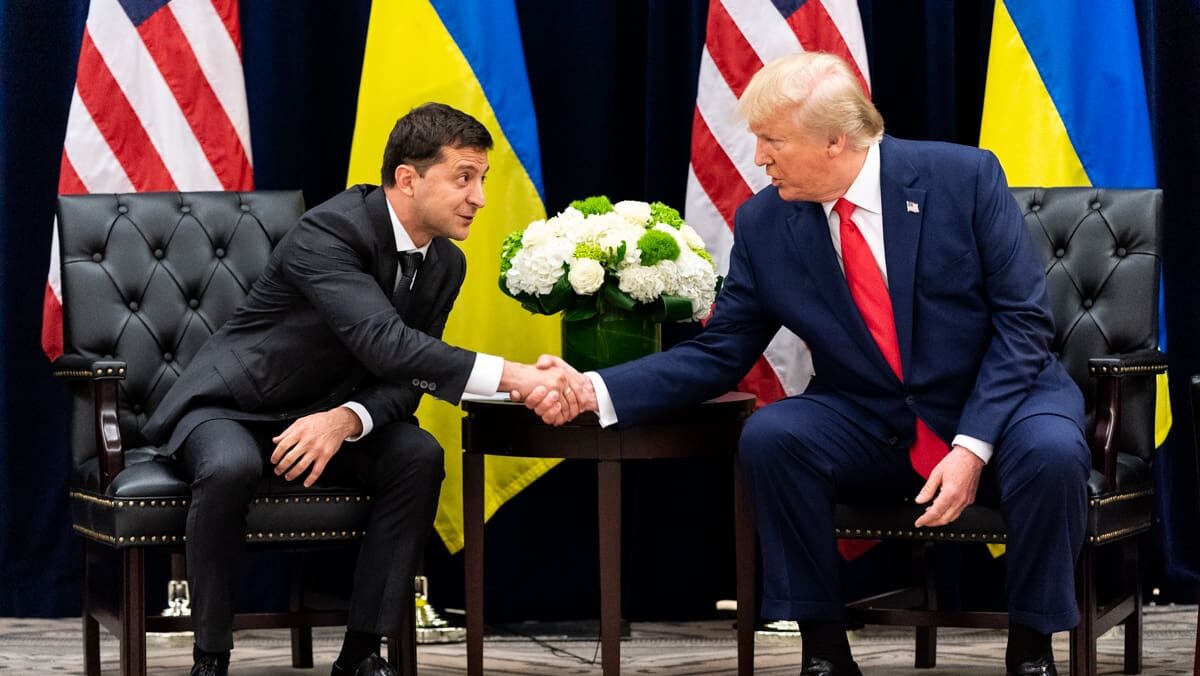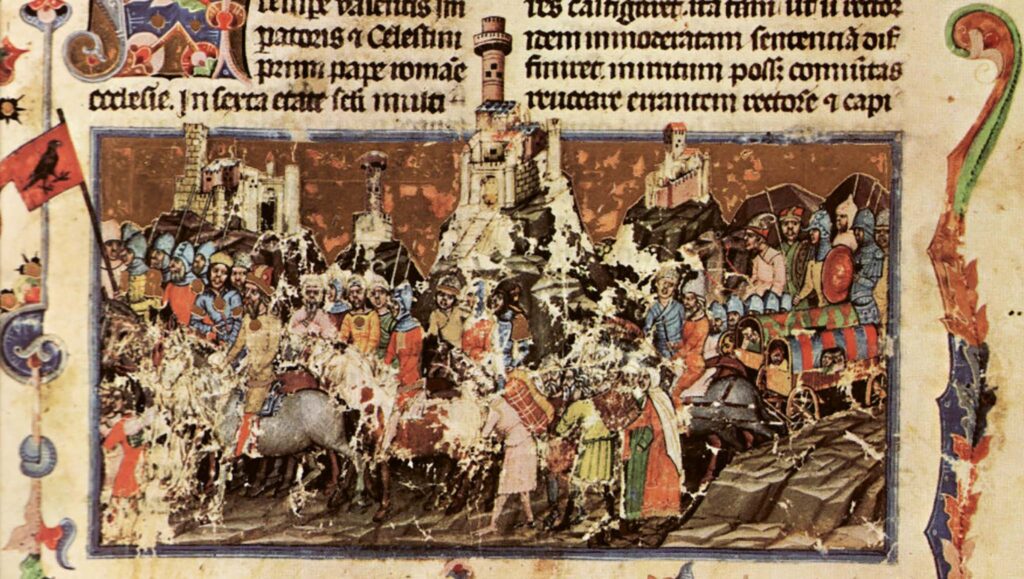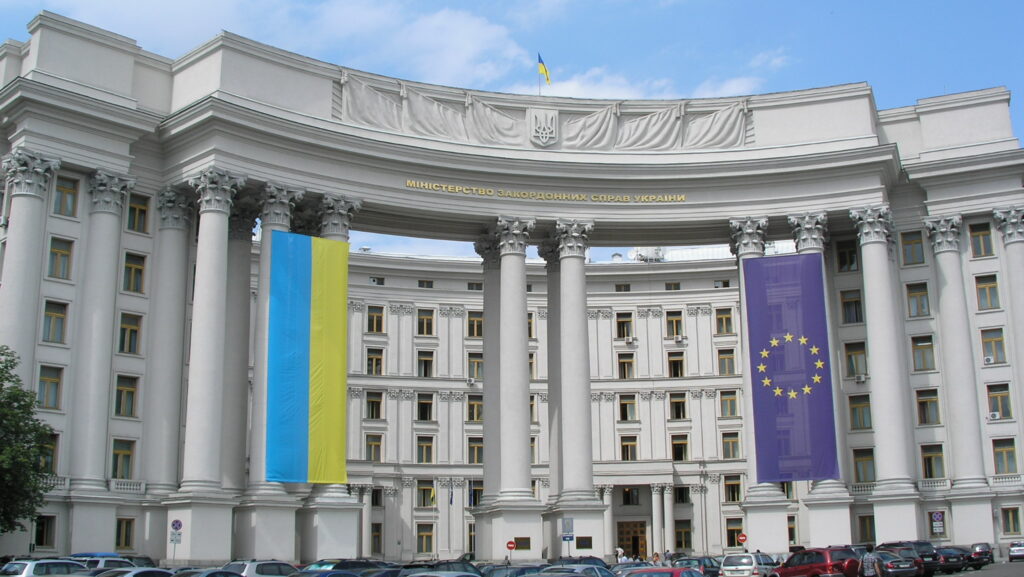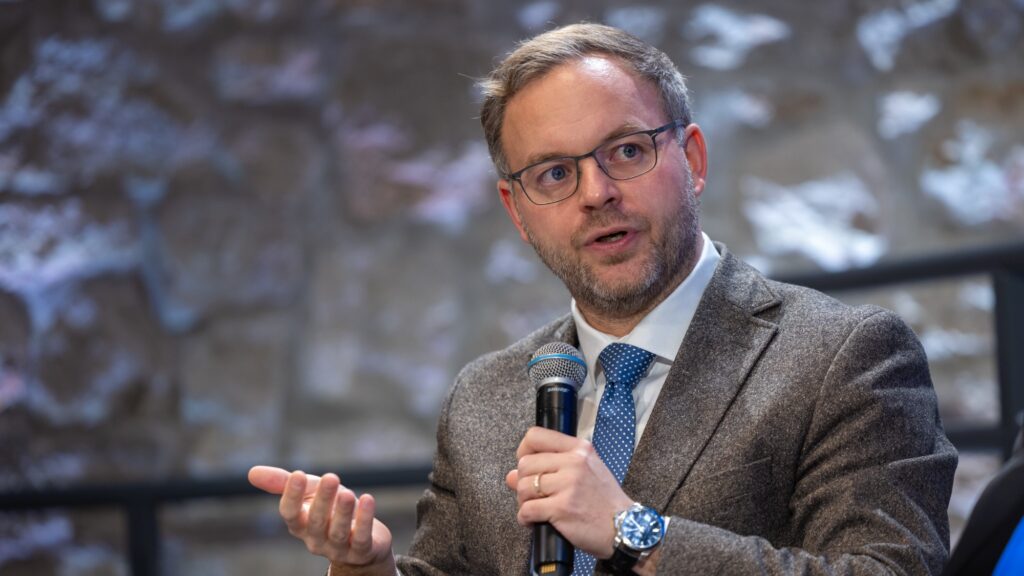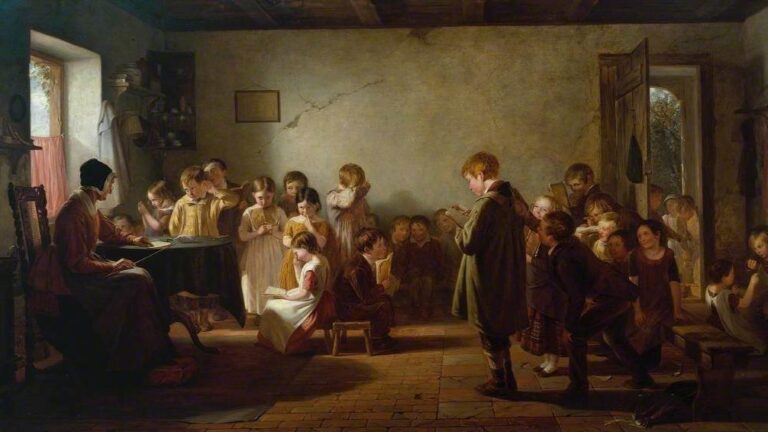‘If you can stop the war during 24 hours I think it will be enough to come to Kyiv, on any day I am here,’ Volodymyr Zelenskyy said in a recent interview. The Ukrainian president extended his invitation to former US President Donald Trump after the latter expressed in multiple statements his ability to end the Russian-Ukrainian war in 24 hours. Zelenskyy also mentioned in the same interview that a potential second term for Trump could pose a significant threat to Ukraine.
The Ukrainian President has indeed reason to worry. Donald Trump has already won two Republican primaries, and the withdrawal of Florida Governor Ron DeSantis has eliminated his biggest rival. Concurrently, the former president is ahead of Joe Biden in several crucial states, despite the Democrats’ concerted efforts to impede Trump’s potential candidacy in the upcoming November election. Additionally, the US Congress is facing challenges in reaching a consensus on providing additional financial and military assistance to Ukraine. A proposal currently under consideration by lawmakers, which ties support for Kyiv to the Mexican border crisis, appears to be unravelling due to pressure exerted by Trump.
In light of these circumstances, it is not surprising that Zelenskyy seeks negotiation. Tensions are escalating between the Ukrainian political and military leadership, as conflicting interests collide over the new mobilization law. The army asserts that the Ukrainian president is hesitant to make essential decisions due to concerns about his popularity. The front lines remain static, leading to a stalemate, and the intensifying war of attrition is playing into Moscow’s favour.
Zelenskyy, speaking at the World Economic Forum in Davos, no longer called for arms, but for peace,
The New York Times reported.
In addition to Trump, Zelenskyy is also seeking talks with Viktor Orbán, and there are indications that the long-anticipated meeting could happen soon. Another crucial EU summit for Ukraine is scheduled for 1 February, during which member states will determine €50 billion in financial support for the war-torn country over the next four years. However, this decision faces a hurdle with a Hungarian veto.
While the meeting is unlikely to occur before the EU summit on 1 February, the fact that the Ukrainian side is expressing a willingness to negotiate is a positive and encouraging development. Since the outbreak of the war, Zelenskyy and various members of the Ukrainian leadership have made numerous, often strongly worded, statements criticizing Hungary for its pro-peace stance. ‘If you’ve seen the video where Russians cut the head off a Ukrainian soldier—the Hungarians are paying for the knife (sic),’ stated Oleg Ustenko, the Ukrainian president’s economic adviser, earlier. Zelenskyy himself has not refrained from criticizing the Hungarian government, urging Viktor Orbán on several occasions to choose between Russia and Ukraine.
Until now, a Ukrainian-Hungarian summit would have been unthinkable, and not due to Hungary. As Minister of Foreign Affairs and Trade Péter Szijjártó has stated in numerous remarks, the Hungarian side has consistently kept the door open to Kyiv to address problematic issues.
Zelenskyy now wants to negotiate, especially with two prominent pro-peace figures of the right-wing. Despite Hungary’s size, Viktor Orbán’s role on the international right has surpassed the country’s dimensions, and Zelenskyy is probably well aware of this. It is not coincidental that Kyiv perceives the present moment as opportune for negotiations. With a little more than four months until the European Parliament elections in June, right-wing parties are in a stronger position than ever to secure victories, indicating a substantial potential for a right-wing shift in the European political landscape. Consequently, it can be inferred that
the persistently pro-war sentiments may diminish, and the pro-peace faction could gain strength.
Behind the aggressive rhetoric—which is notably milder than it was a year ago—Zelenskyy has likely come to the realization that time is running out. He has also likely understood that the war cannot be resolved solely on the battlefield, and that Ukraine may need to concede territory for the sake of peace.
With this realization, we find ourselves effectively returning to the Ukrainian position from the initial months of the conflict.
Although it may not be widely remembered, there were intense negotiations between Ukraine and Russia in March 2022 aimed at ending the war. At that time, Volodymyr Zelenskyy stated that Ukraine would not seek NATO membership—Moscow had cited Ukraine’s abandonment of its neutral status as one of the main reasons for launching the invasion. Zelenskyy emphasized: ‘Security guarantees and neutrality, the non-nuclear status of our state. We are ready to pursue it. This is the most important point.’
Negotiations persisted until Boris Johnson’s visit to Kyiv in May 2022, during which the British Prime Minister intervened to halt the convergence between Russian and Ukrainian positions. Johnson assured Zelenskyy that NATO was fully supportive of Ukraine and would stand by its side to achieve victory in the war.
Since then, Johnson has long ceased to be the prime minister, but his irresponsible promise has resulted in the loss of hundreds of thousands of innocent lives. Nevertheless, it is never too late for peace, as Péter Szijjártó has stressed many times: ‘The conditions for peace today are much better than they will be tomorrow, and they are much worse today than they were yesterday.’ Indeed, Kyiv’s negotiating position is currently much worse than it was a year ago. However, it is likely to be better now than it will be a year from now.
Zelensky is inclined towards negotiation, but what are the aspirations of Europe? Apparently, the opposite. According to POLITICO, EU leaders are contemplating the use of the ‘nuclear option’—suspending Hungary’s voting rights in the European Council in the event of another Hungarian veto. ‘Nowadays, anyone in the free world who pretends to be neutral or shows an equal distance to Ukraine and to Russia deserves that darkest place in political hell,’ underlined Polish Prime Minister Donald Tusk during a recent visit to Kyiv, presumably alluding to Hungary.
Europe, in response to potential shifts overseas, is gearing up for a confrontation with Vladimir Putin’s Russia without Washington. The leaders of the EU’s member states are displaying no inclination towards peace negotiations, and this increasingly pro-war stance is laden with peril. This is a concern of greater magnitude than the apprehension surrounding a potential second Trump presidency, which is causing considerable anxiety in Western Europe.
Zelenskyy wants to negotiate, initially with Trump and Orbán, but ultimately he will inevitably need to engage in talks with Putin. Currently, this is not only prohibited by his own decree but also by most of Europe and the White House—although some reports suggest that the Biden administration no longer prioritizes Ukraine’s ultimate victory. Kyiv relies heavily on Western aid and is effectively on life support as a state. It is evident that peace talks can only proceed with the approval of the West. The timing of such an approval may hinge on the outcomes of the European Parliament elections in June and the US presidential elections in November. In the meantime, considering Zelenskyy’s willingness to sit at the table with pro-peace leaders like Viktor Orbán and Donald Trump is a positive sign, and there is hope that this trend continues.
Related articles:

